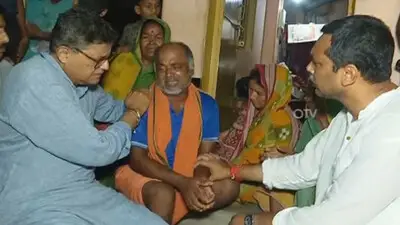"International commodity prices are rising. Food situation is a major issue which is going to affect the international economy and trade. (It) is going to be discussed," Finance Minister Pranab Mukherjee said ahead of the G-20 ministerial meeting here.
Mukherjee and finance ministers of rich and developing countries such as China, Brazil, Russia, the US, Japan, Germany and UK are meeting at a time when increasing food and crude oil prices have replaced currency war and the bail-outs, as the burning issues, as highlighted by the World Bank.
World Bank highlighted the gravity of rising food prices.
"Global food prices are rising to dangerous levels and threaten tens of millions of poor people around the world," its President Robert B Zoellick had said.
The World Bank report said that about 44 million people in developing countries have slipped into poverty on account of soaring prices of food items.
The global food price index has climbed 15 per cent between October 2010 and January 2011, it said, adding that wheat prices have doubled during the same period.
Governments in several countries are battling food inflation, which in India remains in double digit despite moderation in recent weeks.
Noting that the global economic recovery is still fragile, Mukherjee said, the ministerial meeting would focus on achieving long-term sustainable growth.
"The recovery process from the international financial crisis is still fragile. It was expected that by 2010, most of the countries will recover.
"There is strong recovery in North America, particularly the USA, but it is still fragile, particularly in four countries where sovereign debt is very high (and ) are causing problems. These countries are Ireland, Portugal, Spain and Italy," Mukherjee added.
Currency war, which was a major issue at G-20 meetings in South Korea last year, will take a back seat this time. The currency war refers to competitive devaluation of currency by certain countries to keep their exports competitive.
"I don`t think it (currency war) is going to be that prominent in this meeting of the G-20. It was exhaustively and extensively discussed during the last meeting (in South Korea)," Mukherjee said.
The G 20 countries collectively account for 85 per cent of the global output and two-third of the world population.












